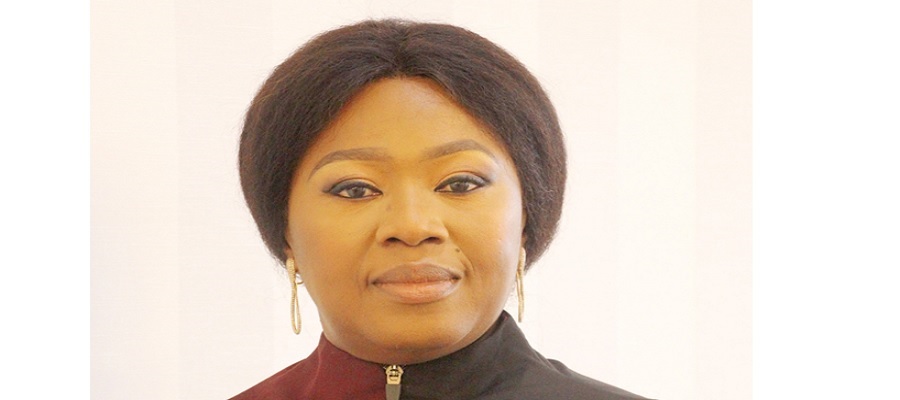E-Business
Pantami Urges Nigerian ICT Players to Embrace New Technologies

Dr. Isa Ibrahim Panatami, Minister of Communications and Digital Economy, has challenged all stakeholders in the Nigerian ICT sector to transform their businesses by embracing new technologies and leveraging opportunities offered by African Continental Free Trade Area (AfCFTA).
This he said will engender expansion and growth of their businesses and by extension our national economy with a resultant effect of more jobs, wealth and improved standard of living for the majority of our people.
Dr. Pantami gave the charge while delivering his keynote address at the 2019 edition of the Local Content Roundtable and Tech Fair sponsored by FinTrak Software held in Abuja.
The event is an annual platform to promote products and services of local players in the Information & Communications Technology sector with the theme: Patronage of Nigerian Software in the Context of AfCFTA and the Local Content Policy.
When implemented, he said AfCFTA will open new markets and provide more opportunities to Nigerian ICT players, specifically Software Companies, assuring that Nigeria will do its best to speedily ratify the Agreement in order to fully operationalize it.
‘‘I challenge all stakeholders in the Nigerian ICT sector to transform their businesses by embracing new technologies and leveraging opportunities offered by African Continental Free Trade Area (AfCFTA). Nigeria will do its best to speedily ratify the Agreement in order to fully operationalize it.
‘‘While there have been discussions on the pros and cons of this agreement on the Nigerian economy, we firmly believe that the impact will be largely positive for the software sub-sector of the Nigerian ICT industry.
It is on record that several Nigerian software products are already being exported and used in other African countries, so AfCFTA is bound to open new markets and provide more opportunities to the Nigerian software companies.
‘‘This will inevitably result in the scaling up of these companies, which will result in more job opportunities and inevitably contribute to increasing the ICT sector contribution to the national GDP.’’
On his part, the Minister said the ministry had instituted the Local Content in ICT Policy by developing and launching the ‘Guidelines for Nigerian Content Development in ICT” In December 2013.
‘‘Thereafter, the Office for Nigerian Content Development in ICT (ONC) was strategically created under the National Information and Communication Development Agency (NITDA) to drive the policy and ensure nationwide adherence with a specific focus on four (4) main areas of ICT Services, Software, Human capital, and Hardware.
‘‘The ONC was charged with growing the Indigenous ICT industry at a level of making a double-digit contribution to Nigeria’s Gross Domestic Product (GDP). This was to be achieved by ensuring that local ICT companies were supported to participate significantly in the various ICF sector value chain.
‘‘During my tenure as the Director-General and Chief Executive at NITDA, we revisited an existing government circular which directed all Federal Public Institutions to obtain clearance from NITDA before embarking on any IT project.
We subsequent” issued the “Guideline on IT project Clearance” to assist in the harmonization of IT projects being implemented by Federal public institutions, with a view to achieving cost reduction in IT projects executions, eliminating duplication and ensuring the development of the local IT market through increased patronage by government.
Earlier in his address, Bimbo Abioye, the GMD, FinTrak Software, said the focus of the meeting was to expose the solutions that had been tested in private sector of the economy to the public sector and ensure that we begin to patronize solutions that were developed in Nigeria to strengthen our capacity, stem the tide of foreign exchange outflow and provide employment for teeming Nigerians.
Abioye lamented the insatiable quest for foreign software by both private and public sectors over the years, which he said had led to the loss of billions of naira annually thus enriching foreign nations and providing employment for their nationals.
He said this culture and practice were perpetrated because of our tendencies not to believe in ourselves and trust what we produce or do as Nigerians.
According to him, ‘‘there are blames on all sided for these as the get rich quick of fellow Nigerians and corruption I high places and production of substandard and poorly supported solutions.’’
E-Business
NAICOM Urges Nigerian Insurers to Develop Cyber Insurance Products

National Insurance Commission (NAICOM) has urged Nigerian insurance companies to develop and introduce cyber insurance products.

This is in response to the escalating digital risks accompanying global digitalization.
This initiative aims to provide coverage against cyber threats and data breaches, ensuring that businesses and individuals are protected in the evolving digital landscape.
To facilitate this development, NAICOM is collaborating with the National Information Technology Development Agency (NITDA) and the Nigeria Data Protection Commission (NDPC).
This partnership seeks to promote cyber insurance and ensure compliance with Nigeria’s Data Protection Regulations, emphasising the importance of data protection training for industry practitioners.
Despite the growing threat of cybercrime, cyber insurance remains underutilised in Nigeria. Industry reports indicate that many businesses and individuals overlook the importance of cyber insurance, even as global cybercrime losses are projected to reach $10.5 trillion by 2025.
NAICOM’s directive underscores the need for the insurance industry to adapt to the digital era by offering products that address contemporary risks, thereby enhancing the resilience of Nigeria’s digital economy.
E-Business
Google Increases Price of Google One Subscription in Nigeria

Google has increased the price of its Google One subscription in Nigeria.

The tech giant, in a note to its customers, said, “Price will automatically increase to N1,900/month on 28 Mar 2025 for your Google One subscription. Cancel at any time in Google Play.”
The old price was N1,200. Google One, a cloud storage service offered by Google LLC, provides users with a centralised platform to manage their storage across Google Drive, Gmail, and Google Photos.
It added that subscribers who do not cancel their subscription will be charged automatically on the payment method they provided.
E-Business
We Are Bringing the Change in Technology Distribution – Chioma Ekeh, TD Africa MD

In the world of technology and entrepreneurship, few names resonate as powerfully as Mrs. Chioma Ekeh, CEO of TD Africa, Africa’s leading technology distribution powerhouse.

Mrs. Chioma Ekeh, CEO of TD Africa
A media-reclusive entrepreneur and quiet achiever, she has made a name for herself not with loud proclamations but through consistent actions that have shaped the trajectory of the continent’s digital economy.
She has steered the company to unprecedented heights, forging strategic partnerships with global giants such as HP, Microsoft, Apple, Starlink, IBM, Dell Technologies, Ring (by Amazon), Cisco, Lenovo, APC by Schneider Electric, Samsung, Bosch, Philips, Logitech, and Vivo.
These collaborations have not only strengthened TD Africa’s position as a market leader but have also contributed to the growth of Africa’s tech ecosystem.
At the recently held Accra Synergy Summit, a high-profile event held in Ghana that brought together top strategic partners and Original Equipment Manufacturers (OEMs), Mrs Ekeh made a bold declaration: “We are no longer waiting for change — we are driving it. We are no longer spectators in the digital revolution — we are architects, engineers, and visionaries shaping the future.” This statement, emblematic of her visionary leadership, underscores her commitment to driving Africa’s tech renaissance.
Ekeh’s words are not mere rhetoric; they are backed by tangible achievements and a deep understanding of Africa’s digital potential. The data speaks for itself.
According to the International Finance Corporation (IFC), Africa’s digital economy is on track to reach $180 billion this year, with projections indicating it will soar to an astonishing $712 billion by 2050.
This growth is not just an increase in numbers — it signifies a paradigm shift in how Africa engages with technology and innovation.
With over 570 million internet users today, Africa is undergoing an unprecedented digital awakening, a number expected to double by 2030 according to the World Bank.
From financial inclusion to business automation, Africa is embracing the digital age at an accelerated pace, with 70% of global mobile money transactions already occurring in sub-Saharan Africa.
This widespread adoption is a testament to the ingenuity and resilience of African entrepreneurs and businesses.
The continent’s tech ecosystem is also attracting significant global attention. In 2022 alone, African tech startups secured over $6.5 billion in investments, a clear testament to the world’s belief in Africa’s digital future.
Ekeh’s message is clear: Africa’s future is bright but requires collective effort.
Rapid transformation does not happen in a vacuum. It is built on strategic collaborations and forward-thinking leadership.
According to Ekeh, “This renaissance is not happening in isolation. It is built on the foundation of strong partnerships. It is fuelled by collaboration — between businesses, governments, and technology enablers like TD Africa. Each of us has a role to play in ensuring that Africa doesn’t just adopt technology but creates, innovates, and leads.”
Her words serve as a rallying cry for businesses, governments, and individuals to strengthen partnerships, increase investments, and take bold steps toward excellence. “Africa is no longer just a consumer of technology. Africa is a builder. Africa is no longer following global trends. Africa is setting them. Africa is no longer waiting for the future. Africa is the future,” she concluded.
Chioma Ekeh’s leadership and vision are a testament to what can be achieved when passion, innovation, and collaboration come together.
As Africa continues its journey toward a tech-driven future, her words and actions remind us that the power to shape tomorrow lies in our hands today.
TD Africa has remained at the forefront of Africa’s tech revolution as the market leader in technology distribution.
Under Ekeh’s leadership, the company has not only expanded its portfolio of global partners but has also facilitated the seamless deployment of innovative tech solutions across various sectors.
By empowering businesses with cutting-edge technology, TD Africa is laying the groundwork for an Africa that does not just consume technology but pioneers it.

 Telecom2 days ago
Telecom2 days agoStarlink Becomes Nigeria’s Second-Largest ISP, Overtakes FiberOne

 Telecom2 days ago
Telecom2 days agoNetwork International Partners with MTN Group to Enhance Digital Payment Solutions Across Africa

 E-Business2 days ago
E-Business2 days agoFlutterwave Partners NITDA to Strengthen Nigeria’s Digital Economy

 E-Business2 days ago
E-Business2 days agoNDPC Secures NJI’s Support for Data Privacy Rights in Nigeria

 Broadcasting2 days ago
Broadcasting2 days agoPrice Hike: DSTV, GOtv Subscribers Threaten Boycott as FCCPC Summons Multichoice

 News2 days ago
News2 days agoMysterious Illness Kills 50 People within Hours of Symptoms, Doctors Raise Alarm

 Telecom2 days ago
Telecom2 days agoTelecom Tariff Increase: What Every Nigerian Needs to Know about MTN, Airtel, and 9Mobile Price Hikes

 E-Financial1 day ago
E-Financial1 day agoMTN Group Fintech Announces Payment Alliance with Network in Africa


























